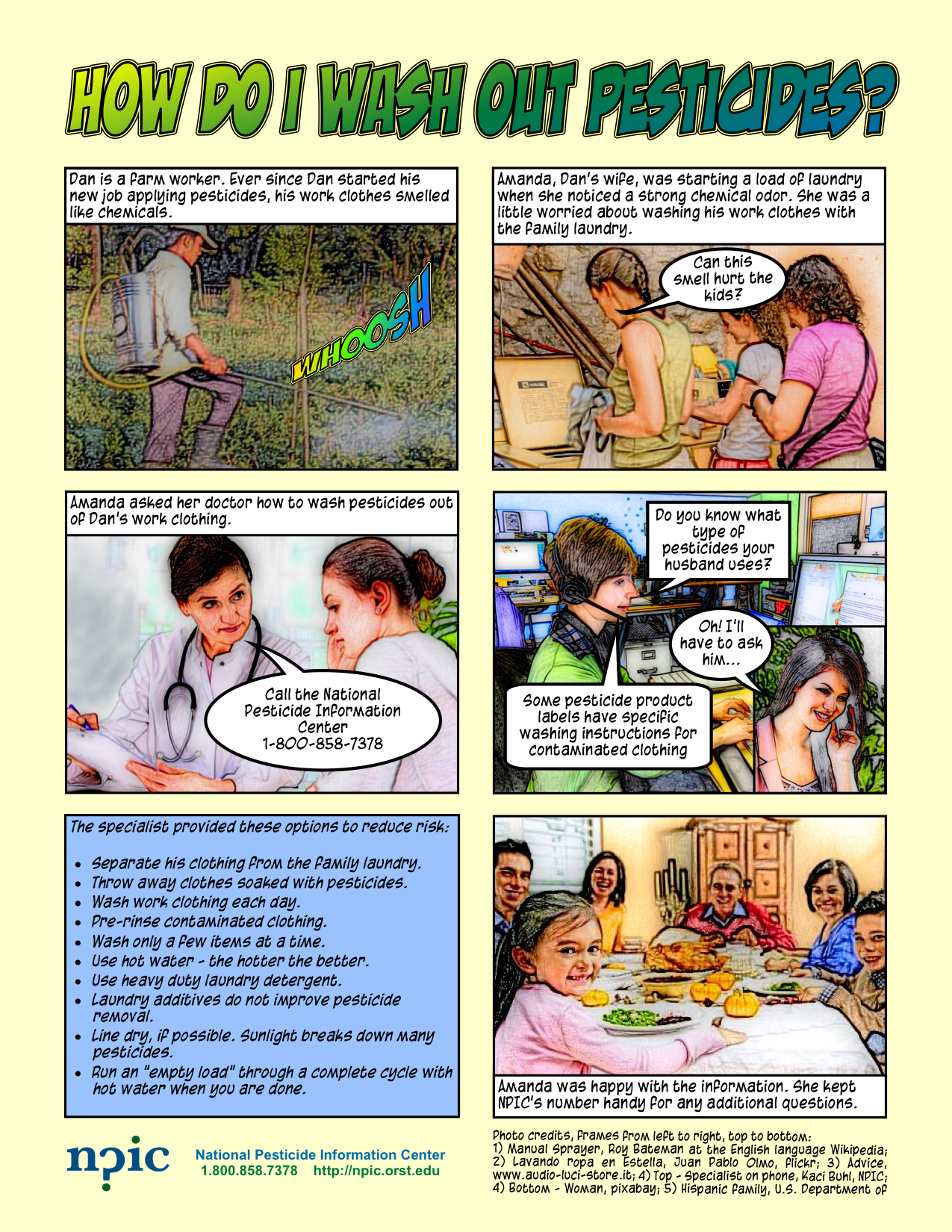Whenever we apply pesticides either at home or as part of our job, there is a potential that our clothes may pick up pesticides. If there’s an accident, we might end up with pesticide-drenched clothes. Washing your work clothing properly can lower your risk and prevent you and your family from getting sick. If clothing is drenched, throw it away.
Lowering the risk for you and your family
- Wear clean work clothing every day.
- Wash work clothing after each and every pesticide application to maximize removal of chemicals.
- Remove clothing with pesticides as soon as you can, to keep pesticides from rubbing off onto your skin. Otherwise, you can continue to be exposed to the pesticide as long as you wear the clothing.
- Read the pesticide label. Some pesticide product labels have specific washing instructions for contaminated clothing.
- Change your work clothes before touching your family to lower their risk and minimize their exposure.
- Shower and wash your hair after changing out of your work clothes.
Before washing clothing with pesticide residue
- Handle dirty clothing with gloves.
- Throw away clothes soaked with pesticides. Do not try to clean them. When in doubt, remember that residue may contaminate your washing machine.
- Leather items cannot be laundered. Discard these items to avoid being exposed every time you wear them.
- Shake clothing outside if you worked with pesticides that are granular, dust, or powders. Check pockets and cuffs for pesticide particles.
- Keep the clothing in a closed plastic bag outside of your home until you are ready to wash them. Keep the bag away from pets and children.
Washing clothing with pesticide residue
- Wash clothing as soon as you can.
- Separate clothing with pesticide residue from the family laundry to avoid contaminating other clothes.
- Wash only a few items at a time and use the highest water level.
- Use hot water - the hotter the better.
- Use heavy-duty laundry detergent.
- Double rinse or re-wash if needed.
- Laundry additives such as chlorine bleach or ammonia don’t help. They do not improve removal of pesticide residues.
- Remove any leftover pesticides from the washer by running an "empty load" through the complete cycle with hot water.
- Line dry, if possible. Sunlight breaks down many pesticides and it can prevent residues from collecting in the dryer.
- If you have to use a dryer, run it until the clothes have completely dried.
All of these options can reduce the risk of pesticide exposure. Long-term exposure to low levels of pesticides can cause harm even if there is no sign of immediate illness.



